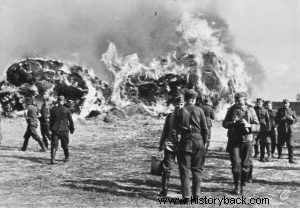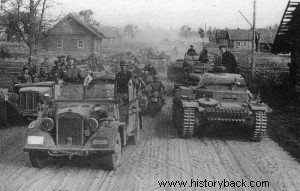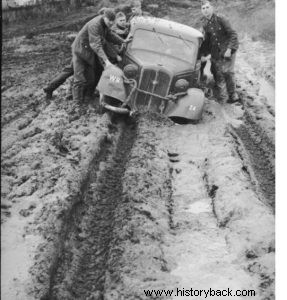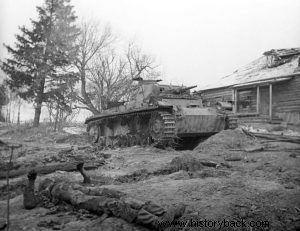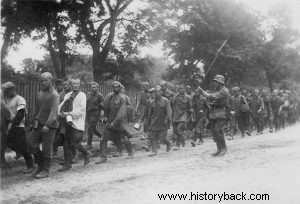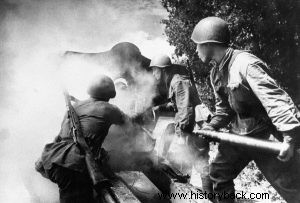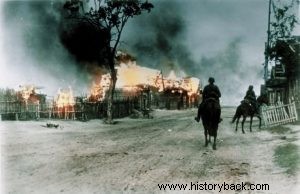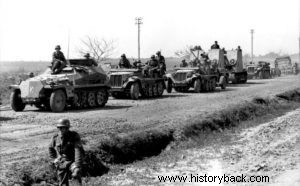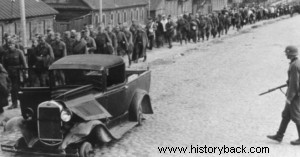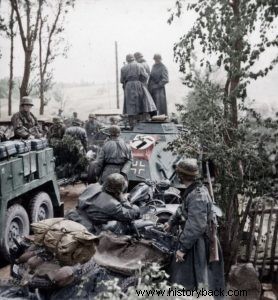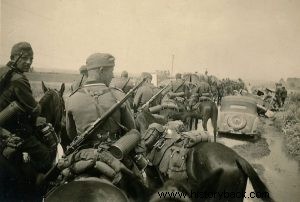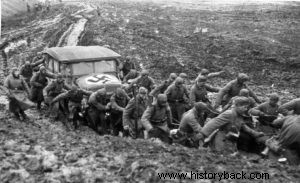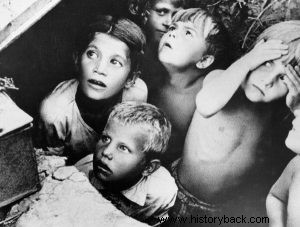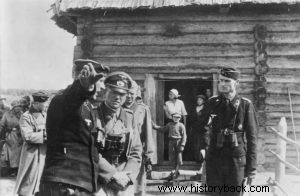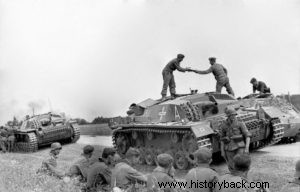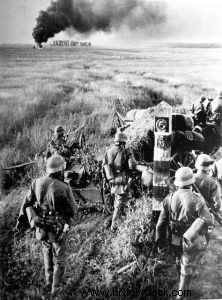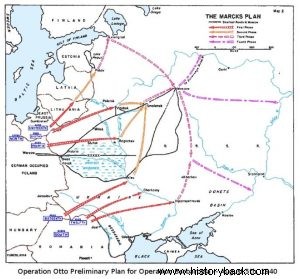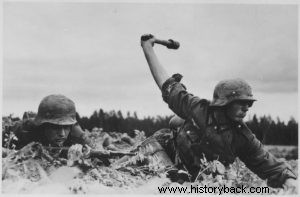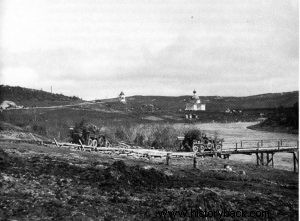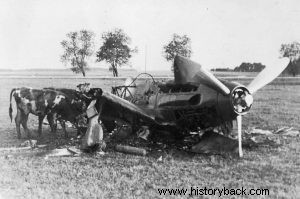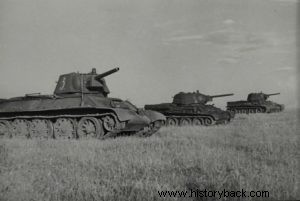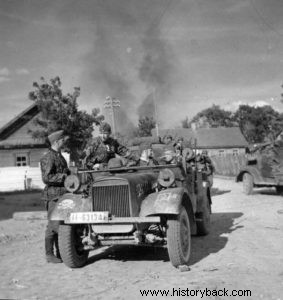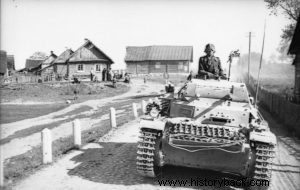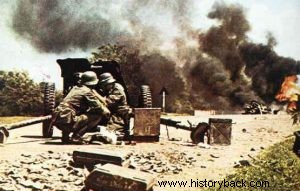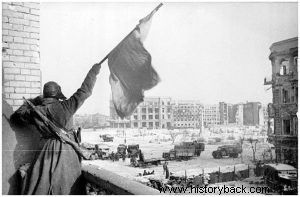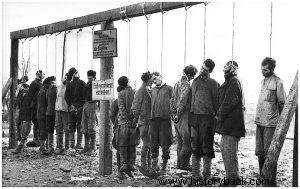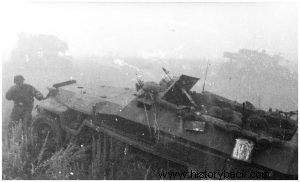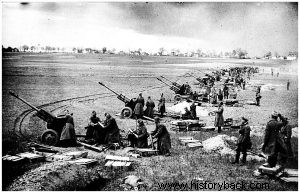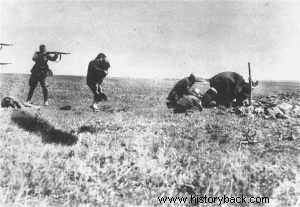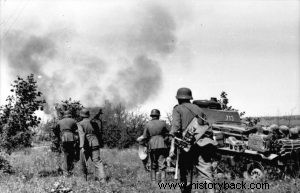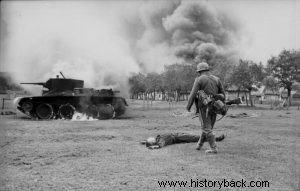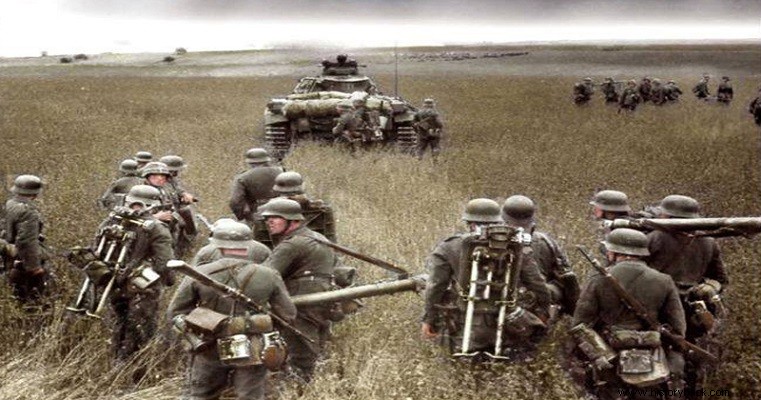
On June 22, 1941, German troops invaded the Soviet Union, marking the beginning of the largest land military operation of all time and the beginning of the end of the Third Reich. Against the Soviet colossus, the German Army did not change its hitherto highly successful tactic, the Blitzkrieg.
The Luftwaffe managed first critical hits on the Red Air Force and on Red Army installations and concentrations. The German Army launched a surprise attack on the Soviet forces and routed them with relative ease. Again the German and their allied forces were divided into three Army Groups (AGs). To the north, OS "North", under von Leeb, had the 16th and 18th Armies and the 4th Armored Group (army) with a total of 29 divisions and 570 tanks.
Further south, OS "Center" was deployed, under von Bock, with 49 divisions integrated into two armies (4th and 9th) and two armored groups (Hot's 3rd and Gunderian's 2nd). OS "Kentro" had 1,770 tanks. The last Army Group "South", under von Runstedt, had 42 divisions in two armies (17th and 11th) and one armored group, the 1st, under von Kleist with 750 tanks.
Together with the reserves of the High Command of the Army, for the attack against the Soviet Union the Germans threw into battle 139 divisions of all types and 3,090 tanks. Along with them were the Romanian 3rd and 4th Armies with 12 infantry divisions, 4 cavalry brigades and 5 mountain brigades, an Italian corps with two motorized infantry divisions and one fast-moving division (Celere), a Hungarian corps of two motorized infantry brigades and of one cavalry brigade and a Slovak corps with two infantry divisions and one motorized infantry brigade.
Further north the Finnish Army was also ready to join the war against the Soviets with 16 infantry divisions, one cavalry brigade and 2 mountain infantry brigades. The German Army also had a division of Spanish volunteers, the famous "Blue" Division. This division did not belong to the SS, but to the army and was normally included in its order of battle, bearing the number 250 (250th Infantry Division).
The attack progressed favorably for the German Army. The Red Air Force, despite its overwhelming numerical superiority was fragmented, leaving the Luftwaffe to dominate the airwaves. This fact had a catalytic effect on land-based businesses as well. The German Army undisturbed applied its standard tactics and trapped the Soviet border armies.
By December 1941 the Soviets had lost 3,000,000 men. In Russia, however, the German doctrine was not applied without trepidation. The Soviet beleaguered armies did not simply lay down their arms. Although they had no hope, yet they fought with fierce fanaticism. However, the Germans were advancing. In the winter, however, the situation changed. The ancient ally of the Russian armies, "General Winter", hit the Wehrmacht particularly hard . The German Army was forced to halt before Moscow due to the flawless cooperation of the Russian winter and the Red Army. It was his first failure.
After repelling the Soviet counterattack, in the winter of 1941-42, the German Army went on the offensive again. New siege battles brought new victories. But then came Stalingrad, the crash. The hitherto invincible German Army crumbled under the weight of the mistakes of its leadership and the enemy's numerical superiority. From then on he would be fighting a losing battle. He would always fight with the same courage, the same method and the same devotion to duty. Many times they would achieve tactical triumphs.
But he would never again be able to challenge the supremacy of the opponent. The defeat at Kursk in the summer of 1943 sealed the result. In this battle, the German attack was repulsed by the Soviets for the first time. Although the flower of the army and SS divisions were thrown into the fray, the Soviets, entrenched in seven defensive lines, held out and the Panzers fled. After all, the Red Air Force had actually begun to challenge the Luftwaffe's supremacy in the airwaves.
After the battle of Kursk the army conducted basically a defensive struggle. For the next two years the German Army would retreat, suffocatingly pressed by the Soviets, unable to put its tactical doctrine into practice. Of course, it was not limited to passive defense. However, the numerical superiority of the opponent in terms of men and material was so great that no matter how well he fought, the result was predetermined. And after all, the last hopes were dashed by Hitler's new administration.
